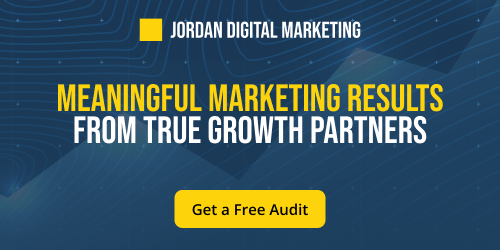No marketer can avoid the truth of 2025: the landscape of search is evolving rapidly with the rise of Large Language Models (LLMs) like ChatGPT, Perplexity, and Google’s Gemini.
This shift is transforming how brands optimize for visibility and how users interact with search results. It’s also beginning to take a chunk of engagement away from brands as zero-click search results start eating into clicks.
Before I get into the details, some overarching recommendations for brands emerging from this shift:
- Focus on brand-building across a broader range of channels, including social media; as users look beyond Google to find information, owning your brand’s narrative everywhere is imperative.
- Google laid the groundwork for this with E-E-A-T, and it’s more true than ever: establishing your brand as the primary source on your topic will put you in position to succeed as search behavior evolves.
Now let’s get into the why behind those statements.
AI vs. Traditional Search: The Key Differences
- Conversational Responses Over Clicks
Traditional search engines were built around the idea of driving users to websites via clickable links. LLMs, however, provide a direct response within the chat interface, minimizing outbound traffic. This means brands need to rethink their strategies—AI visibility is more about brand awareness than referral traffic.
- Predictive vs. Reactive
Traditional search engines respond to queries with content that aligns quite literally with the query, but LLMs are built to predict the next works or ideas leading from those queries. For this reason, LLMs are more contextual and can draw more inference when modeling their responses. Rather than write content or design UX for a specific keyword, which would be rewarded in traditional SERPs, SEOs looking to establish a presence in AI search results should focus on critical categories that incorporate related words and ideas.
- Changing User Behavior and Intent
Users interact with AI differently than traditional search engines. Instead of simple keyword queries, AI interactions are more conversational, often refining prompts iteratively to get better results. As a result, the focus shifts from optimizing for single keywords to owning entire topics through comprehensive content strategies.
- The Decline of Referral Traffic
AI doesn't drive much referral traffic. For example, brands might see 200,000 visits from Google but only 200 from ChatGPT. This suggests that while LLMs are capturing top-of-funnel search queries, they aren't yet strong drivers of direct conversions.

Optimizing for AI Search: A New Approach
Given these shifts, brands need to adapt their SEO strategies to ensure they remain visible across both traditional and AI-driven search landscapes.
- Become the Primary Source
Instead of chasing short-term keyword wins, brands should aim to be the definitive source of information on their topics. Search engines and LLMs alike prioritize authoritative content that provides value. Original insights, in-depth research, and expert opinions help establish credibility in AI-generated responses.
- Embrace Topic Clustering
With traditional SEO, targeting a single keyword was often enough. With AI, it's about covering an entire subject comprehensively. This means structuring content around topic clusters—creating pillar pages supported by in-depth subtopics to ensure full coverage of a subject.
- Prioritize Citations and Mentions
LLMs reference trusted sources to validate their responses. Earning citations in reputable industry publications, directories (G2 and Capterra for SaaS brands, but each vertical will have their own), and digital PR campaigns help reinforce a brand’s authority.
How LLMs Are Reshaping the Search Funnel
Traditionally, the search funnel had clear stages: awareness, consideration, and conversion. But with AI, user journeys have become more fluid.
- Top-of-Funnel: Users turn to AI for broad, introductory knowledge (e.g., "What is an SEO strategy?").
- Mid-Funnel: For deeper research, users shift to Google or expert sources (e.g., "Moz’s guide to SEO strategy").
- Bottom-of-Funnel: When users seek real-world opinions, they move to platforms like Reddit or TikTok (e.g., "Has anyone tried this SEO tool?").
Instead of a strict funnel, search behavior now resembles an intent map, where users jump between AI, traditional search engines, and community-driven platforms. Brands must maintain visibility at multiple touchpoints to stay relevant.
The Future of AI Search in 2025 and Beyond
AI search is still in its infancy, but its impact is accelerating. Here are some predictions for the near future:
- Improved AI Search Quality: Expect rapid improvements in how LLMs retrieve and refine data, making them more reliable for research.
- E-Commerce Integration: LLMs may introduce direct transaction capabilities, allowing users to make purchases without leaving the chat interface.
- Platform-Specific AI Search: Other major platforms like TikTok, LinkedIn, and Meta may integrate AI search functionalities tailored to their user bases.
- Automated Search Optimization: Instead of optimizing for human users, brands might begin optimizing for AI-driven operators that retrieve and interpret content on users’ behalf.
Final Thoughts
The rise of AI search doesn’t mean the end of traditional SEO—it means adaptation. While Google remains a dominant force in search, the growing influence of AI-driven models requires a shift in strategy. By focusing on expertise, topic authority, and citation-building, brands can maintain visibility across both traditional and AI-powered search landscapes.
As user behavior continues to evolve, the key to success will be ensuring your brand is represented across multiple search entry points—from LLMs to Google to social-driven searches. The future of search isn’t a single funnel—it’s a complex web of touchpoints, and brands that understand and embrace this shift will have the competitive edge.